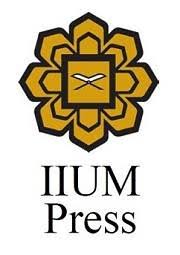موقف الإمام أبي حنيفة من حديث رسول الله وحجّيته
Imam Abu Hanifah on the Hadith of the Prophet and its authority
DOI:
https://doi.org/10.31436/alburhn.v8i2.355Keywords:
Imam Abu Hanifah, Prophetic Hadith, accusations, doubts and responses.Abstract
Imam Abu Hanifa, may Allah have mercy on him, is one of the four great Imams followed by a vast number of Muslims around the world, and his followers outnumber the rest in the world. There is no doubt that the Imam adhered to the Holy Qur’an, the authentic Prophetic Sunnah, the consensus of the Companions, and sound analogical reasoning. These are the fundamental sources of Islamic jurisprudence in all schools of thought. Despite this, Imam Abu Hanifa has been opposed and criticized by many, with baseless accusations. Some claim that Abu Hanifa had little knowledge of the Prophetic Hadith. Others say he only knew 17 Hadiths, and some go further to assert that he knew only 130 Hadiths, of which he forgot or confused 120, either by altering the chain of transmission or changing the text unknowingly, leaving him with only 10 Hadiths in possession. Is it conceivable that someone with such limited knowledge of the Hadith of the Prophet, peace be upon him, could be among the greatest Imams of the Muslims, followed by the majority of Muslims across the world?
The opinions of scholars about him differ. Some were moderately fair, their piety preventing them from attacking him, while others exceeded all bounds, not fearing any punishment from Allah the Almighty, and thus narrated false accounts. We wish if these people had restrained their tongues out of fear of Allah! Did their piety not prevent them from sharing everything they heard or read with the masses about this great Imam, who met his Lord with a pure and sincere heart? Allah granted him blessings in this world, and in the Hereafter. He will be among the close ones to Allah, leaving behind a lasting legacy. Peace be upon Abu Hanifa al-Nuʿman.
This study addresses the accusations directed at al-Nuʿman—the Greatest Imam—using an inductive, analytical, and critical methodology to establish the truth. Of course, we do not claim that Imam Abu Hanifa was infallible, by Allah! no! No one has the right to make such a claim, not even about the Prophets, except that Allah forgave the Prophets for their past and future sins. This study does not aim to prove that Abu Hanifa, may Allah have mercy on him, was correct and truthful in everything he said, but rather to distinguish truth from falsehood, whether it was said by the Hanafi school, the scholars of Hadith, or other schools of thought. This is what we call upon all esteemed scholars to do, regardless of their affiliations, and without bias.
Downloads
References
Ibn Abī Ḥātim, Abū Muḥammad ʿAbd al-Raḥmān bin Muḥammad bin Idrīs bin al-Mundhir al-Tamīmī al-Ḥanẓalī al-Rāzī. Al-Jarḥ wa-al-Taʿdīl. (Ḥaydar Ābād: Dāʾirat al-Maʿārif al-ʿUthmāniyyah, 1952).
Ibn Khaldūn, ʿAbd al-Raḥmān. Al-ʿIbar wa-Dīwān al-Mubtadaʾ wa-al-Khabar fī Tārīkh al-ʿArab wa-al-Barbar wa-Man ʿĀṣarahum min Dhawī al-Shaʾn al-Akbar. Taḥqīq: Dr. Suhayl Zakkār. (Bayrūt: Dār al-Fikr, 1981).
Ibn al-Ṣalāḥ, Abū ʿAmr ʿUthmān bin ʿAbd al-Raḥmān. Maʿrifat Anwāʿ ʿIlm al-Ḥadīth. Taḥqīq: ʿAbd al-Laṭīf al-Humaym - Māhir Yāsīn al-Faḥl. (Bayrūt: Dār al-Kutub al-ʿIlmiyyah, 2002).
Ibn ʿAdī, Abū Aḥmad al-Jurjānī. Al-Kāmil fī Ḍuʿafāʾ al-Rijāl. Taḥqīq: ʿAbd al-Fattāḥ Abū Sunnah. (Bayrūt: Dār al-Kutub al-ʿIlmiyyah, 1997).
Ibn Qayyim al-Jawziyyah, Abū ʿAbd Allāh Muḥammad bin Abī Bakr bin Ayyūb. Rafʿ al-Yadayn fī al-Ṣalāh. Taḥqīq: ʿAlī bin Muḥammad al-ʿImrān. (Bayrūt: Dār Ibn Ḥazm, 2019).
Abū Ḥanīfah, al-Nuʿmān bin al-Thābit. Al-ʿAqīdah wa-ʿIlm al-Kalām. Taḥqīq: Zāhid al-Kawtharī. (Bayrūt: Dār al-Kutub al-ʿIlmiyyah, 2004).
Aḥmad bin Ḥanbal, Abū ʿAbd Allāh al-Shaybānī. Al-ʿIlal wa-Maʿrifat al-Rijāl. Taḥqīq: Waṣī Allāh bin Muḥammad ʿAbbās. (Al-Riyāḍ: Dār al-Khānī, 1422).
Al-Albānī, Muḥammad Nāṣir al-Dīn. Silsilat al-Aḥādīth al-Ḍaʿīfah wa-al-Mawḍūʿah wa-Atharuhā al-Sayyiʾ fī al-Ummah. (Al-Riyāḍ: Maktabat al-Maʿārif, 1992).
Al-Bukhārī, Abū ʿAbd Allāh Muḥammad bin Ismāʿīl bin Ibrāhīm bin al-Mughīrah. Al-Tārīkh al-Kabīr. Taḥqīq: Muḥammad ʿAbd al-Maʿīd Khān. (Ḥaydar Ābād, al-Hind: Dāʾirat al-Maʿārif al-ʿUthmāniyyah, n.d.).
Al-Baghdādī, Abū Bakr Aḥmad bin ʿAlī bin Thābit bin Aḥmad bin Mahdī al-Khaṭīb. Tārīkh Baghdād wa-Dhuyūluh. Taḥqīq: Muṣṭafā ʿAbd al-Qādir ʿAṭā. (Bayrūt: Dār al-Kutub al-ʿIlmiyyah, 1417).
Al-Judayʿ, ʿAbd Allāh bin Yūsuf. Taḥrīr ʿUlūm al-Ḥadīth. (Bayrūt: Muʾassasat al-Rayyān li-al-Ṭibāʿah wa-al-Nashr wa-al-Tawzīʿ, 2003).
Al-Ḥijjūī, Muḥammad bin al-Ḥasan bin al-ʿArabī bin Muḥammad al-Thaʿālibī al-Jaʿfarī al-Fāsī. Al-Fikr al-Sāmī fī Tārīkh al-Fiqh al-Islāmī. (Bayrūt: Dār al-Kutub al-ʿIlmiyyah, 1995).
Al-Dhahabī, Shams al-Dīn. Siyar Aʿlām al-Nubalāʾ. (Al-Qāhirah: Dār al-Ḥadīth, 2006).
Al-Dhahabī, Shams al-Dīn. Tadhkirat al-Ḥuffāẓ. Taḥqīq: Zakariyyā ʿUmayrāt. (Bayrūt: Dār al-Kutub al-ʿIlmiyyah, 1998).
Al-Sarakhsī, Abū Bakr Muḥammad bin Aḥmad bin Abī Sahl. Tamhīd al-Fuṣūl fī al-Uṣūl. Taḥqīq: Abū al-Wafā al-Afghānī. (Ḥaydar Ābād, al-Hind: Lajnat Iḥyāʾ al-Maʿārif al-Nuʿmāniyyah, d.t.).
Al-Sibāʿī, Muṣṭafā bin Ḥasanī. Al-Sunnah wa-Makānatuhā fī al-Tashrīʿ al-Islāmī. (Dimashq: al-Maktab al-Islāmī, 1982).
Al-Shahrastānī, Abū al-Fatḥ Muḥammad bin ʿAbd al-Karīm bin Abī Bakr Aḥmad. Al-Milal wa-al-Niḥal. Taḥqīq: ʿAbd al-Amīr ʿAlī Muhannā wa-ʿAlī Ḥasan Fāʿūr. (Bayrūt: Dār al-Maʿrifah, 1993).
Al-Shāṭibī, Abū Isḥāq Ibrāhīm bin Mūsā bin Muḥammad al-Lakhmī. Al-Muwāfaqāt. Taḥqīq: Abū ʿUbaydah Mashhūr bin Ḥasan Āl Salmān. (Al-Qāhirah: Dār Ibn ʿAffān, 1997).
Ibn Ḥajar al-ʿAsqalānī, Taqrīb al-Tahdhīb. Taḥqīq: Muḥammad ʿAwāmah. (Dimashq: Dār al-Rashīd, 1986).
Ibn Ḥajar al-ʿAsqalānī, Tahdhīb al-Tahdhīb. (Al-Hind: Maṭbaʿat Dāʾirat al-Maʿārif al-Niẓāmiyyah, 1326).
Al-Qārī, al-Mullā ʿAlī. Sharḥ Nukhbat al-Fikar fī Muṣṭalaḥāt Ahl al-Athar. Taḥqīq: Muḥammad Nizār Tamīm wa-Haytham Nizār Tamīm. (Bayrūt: Dār al-Arqām, d.t.).
Al-Qāsimī, Muḥammad Jamāl al-Dīn bin Muḥammad Saʿīd bin Qāsim al-Ḥallāq. Qawāʿid al-Tahdīth min Funūn Muṣṭalaḥ al-Ḥadīth. (Bayrūt: Dār al-Kutub al-ʿIlmiyyah, d.t.).
Al-Kawtharī, Muḥammad Zāhid bin al-Ḥasan. Taʾnīb al-Khaṭīb ʿalā mā Sāqah fī Tarjamat Abī Ḥanīfah min al-Akādhib. (Bayrūt: Dār al-Bashāʾir al-Islāmiyyah, 1990).
Al-Nuʿmānī, Muḥammad ʿAbd al-Rashīd. Makānat al-Imām Abī Ḥanīfah fī al-Ḥadīth. (Ḥalab: Maktab al-Maṭbūʿāt al-Islāmiyyah, 1416H).
Downloads
Published
How to Cite
Issue
Section
License
In general, reusing or reproducing substantial portions of al-Burhān content requires permission. This includes the use of text, figures, tables, multimedia content, and any other material published in any issues of al-Burhān Journal of Qur'an and Sunnah Studies. For some instances, al-Burhān may make its content freely viewable; however, such material may require permission for reuse. To seek permission, please contact the editorial.









